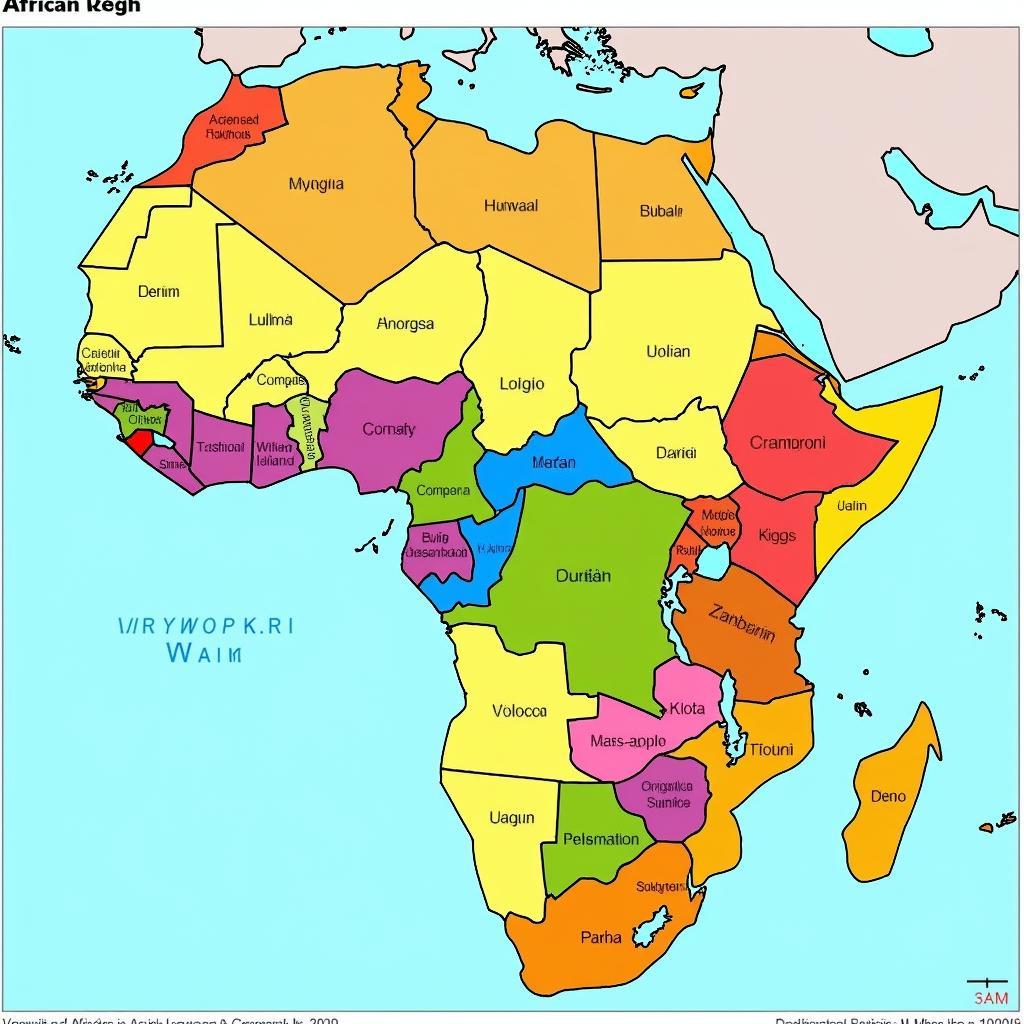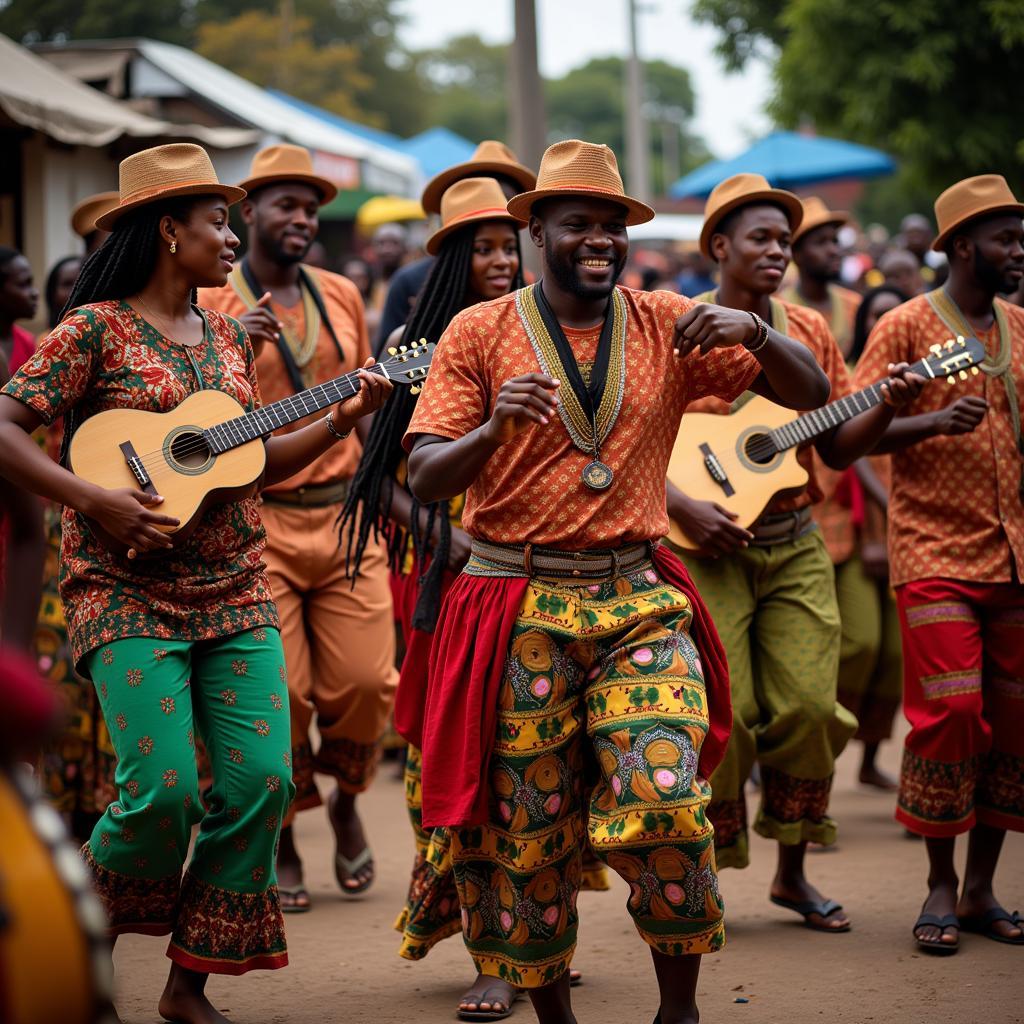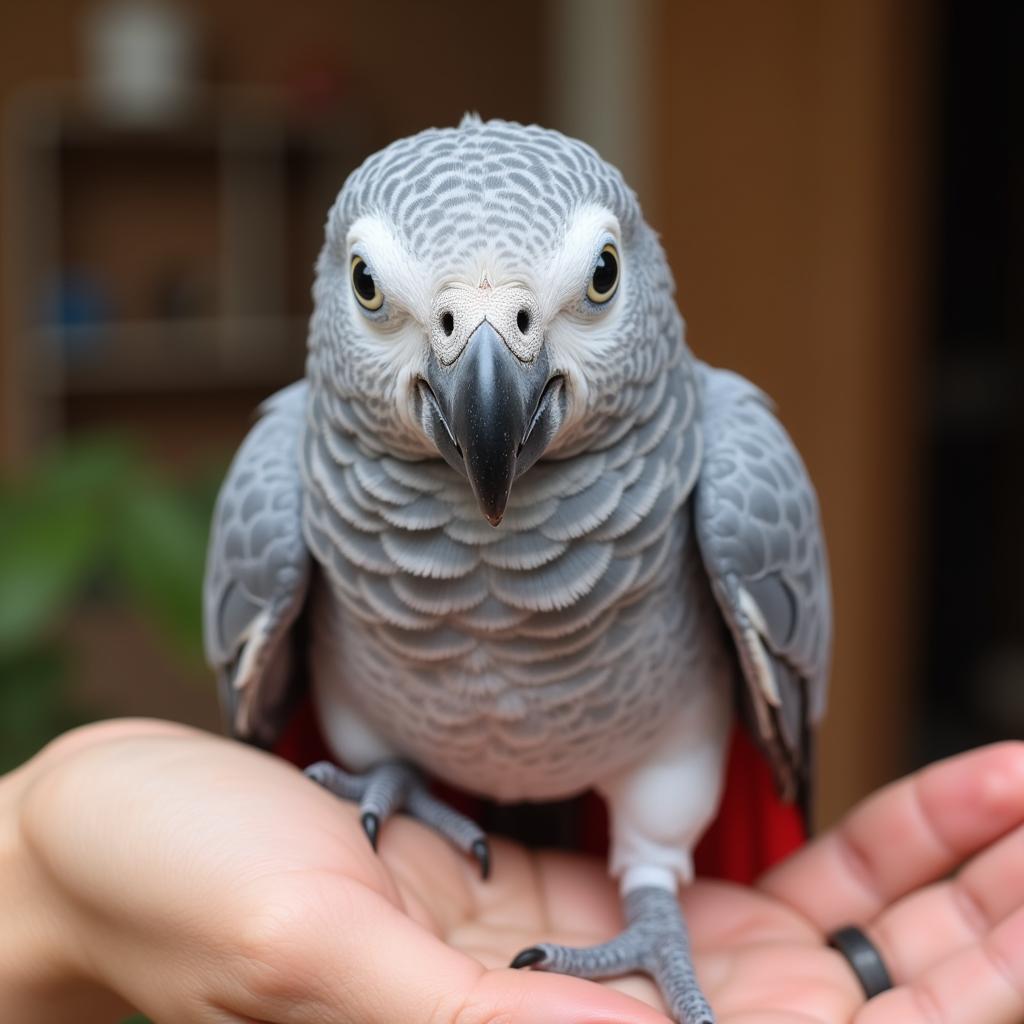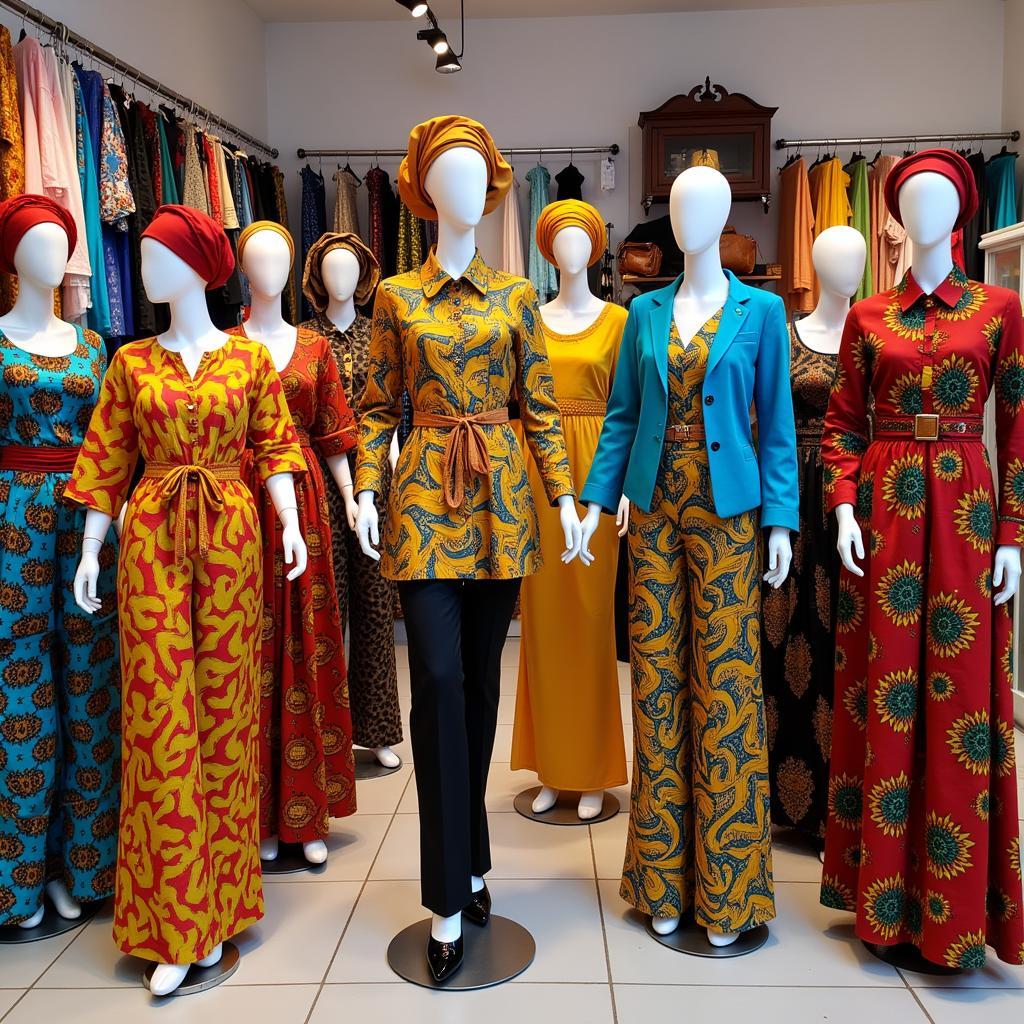Exploring the Rich Tapestry of African Creole
African Creole languages, born from the crucible of cultural exchange, represent a fascinating linguistic phenomenon across the African continent and beyond. These vibrant languages, often overlooked, tell stories of resilience, adaptation, and the enduring power of communication.  Map of African Creole Languages
Map of African Creole Languages
Understanding the Genesis of African Creole
African Creole languages arose primarily during periods of colonization and the transatlantic slave trade. They are often characterized by a simplified grammatical structure compared to their parent languages, incorporating elements from European languages, typically Portuguese, French, or English, as well as various African languages. This unique blend results in a dynamic and ever-evolving linguistic landscape. The emergence of these creoles was a testament to the human capacity for communication even under the most challenging circumstances. They served as a vital bridge between different cultural groups, facilitating trade, social interaction, and ultimately, survival.
Unveiling the Diversity within African Creole
The term “African Creole” encompasses a wide array of distinct languages, each with its own unique history, vocabulary, and cultural significance. From the african french creole spoken in Senegal and other parts of West Africa to the Seychelles Creole of the Indian Ocean, the diversity is astounding. These languages are not merely dialects but fully developed systems of communication, reflecting the complex social and historical contexts in which they emerged. Consider, for instance, the Krio language of Sierra Leone, which serves as a lingua franca for a significant portion of the population. Its vibrant vocabulary and expressive idioms reflect the rich cultural heritage of the country.
One prominent example is the influence of Portuguese on certain African Creoles. In islands like Cape Verde and São Tomé and Príncipe, Portuguese-based Creoles are widely spoken, showcasing the lasting impact of Portuguese colonialism. These creoles offer a glimpse into the complex intermingling of cultures that shaped these island nations. They are a living testament to the enduring legacy of colonialism, while simultaneously representing a unique and distinct cultural identity.
The Cultural Significance of African Creole
African Creole languages are far more than just tools for communication. They are repositories of cultural knowledge, traditions, and history. They are often associated with oral storytelling, music, and other forms of artistic expression, playing a vital role in preserving cultural heritage.  Music and Dance in African Creole Culture Imagine the rhythmic cadence of Kriol music in Sierra Leone, the vibrant storytelling traditions of Cape Verde, or the poetic expressions in Seychellois Creole. Each language carries within it the echoes of its past, the hopes of its present, and the dreams of its future.
Music and Dance in African Creole Culture Imagine the rhythmic cadence of Kriol music in Sierra Leone, the vibrant storytelling traditions of Cape Verde, or the poetic expressions in Seychellois Creole. Each language carries within it the echoes of its past, the hopes of its present, and the dreams of its future.
Dr. Abeni Okonjo, a renowned linguist specializing in African languages, emphasizes the importance of these Creoles: “African Creole languages are not just linguistic curiosities; they are vibrant expressions of cultural identity. They embody the resilience and creativity of African communities in the face of historical adversity.”
The Future of African Creole in a Globalized World
In an increasingly interconnected world, the future of African Creole languages faces both challenges and opportunities. While globalization can lead to language shift and the dominance of global languages like English and French, there is also a growing recognition of the importance of linguistic diversity and cultural preservation. Efforts are being made to promote Creole languages in education, media, and other spheres of public life.
Furthermore, the rise of the internet and social media has created new avenues for Creole language use and revitalization. [african diaspora writer in the indian ocean](https://omenkamag.com/african-diaspora-writer-in-the-indian ocean/) can connect and share their work, further strengthening these linguistic communities. This digital space allows for the creation of online dictionaries, language learning resources, and platforms for cultural exchange, fostering a sense of pride and belonging among Creole speakers.
What are some common misconceptions about African Creoles?
One common misconception is that Creoles are simplified versions of European languages. In reality, they are complex and fully developed languages with their own unique grammatical structures. Another misconception is that they are not “real” languages. This view ignores the rich cultural and historical significance of these languages and the vital role they play in the lives of millions of people.
What are the challenges faced by African Creole speakers?
Many African Creole speakers face challenges related to language discrimination and lack of access to education and resources in their native languages. This can lead to social and economic marginalization. Efforts are underway to address these challenges through language policy reforms and community-based initiatives. african american slang words are also gaining recognition, further highlighting the dynamic nature of language evolution.
Conclusion
African Creole languages are a testament to the enduring human capacity for adaptation, innovation, and cultural exchange. From their origins in the crucible of colonialism to their vibrant presence in the modern world, these languages offer a unique window into the rich tapestry of African history and culture. It is crucial to continue researching, documenting, and celebrating these linguistic treasures, ensuring their preservation for future generations. african dialects script are another fascinating area of study, showcasing the diversity of linguistic expression across the continent. Understanding and appreciating African Creole is essential for a more complete understanding of African culture and the global linguistic landscape.
FAQ
- Are all African Creole languages related?
- How many African Creole languages are there?
- What is the most widely spoken African Creole language?
- Where can I learn more about African Creole languages?
- Are there any online resources for learning African Creole languages?
- What is the role of African Creole in literature and the arts?
- How are African Creole languages being preserved and promoted?
When you need support, please contact Phone Number: +255768904061, Email: kaka.mag@gmail.com or visit us at Mbarali DC Mawindi, Kangaga, Tanzania. We have a 24/7 customer service team.




